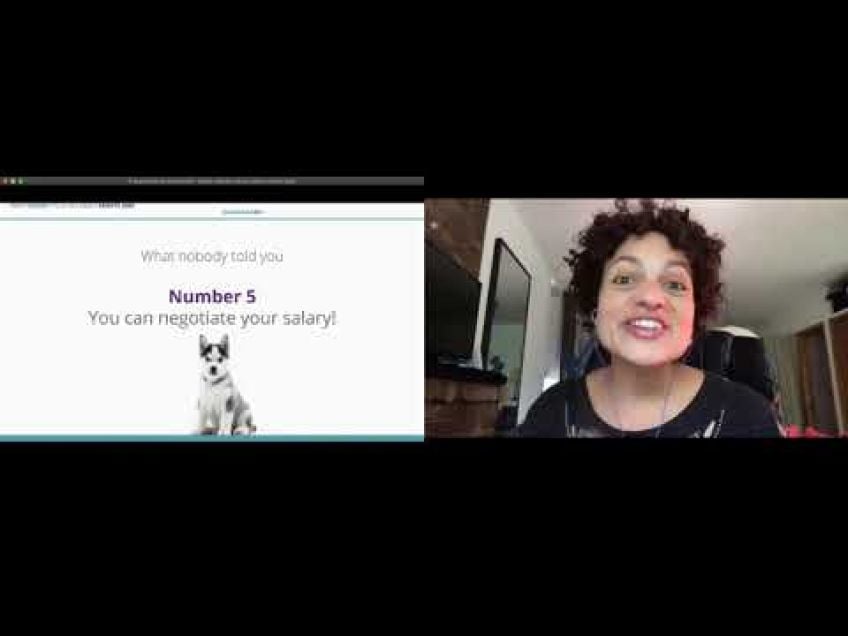Are you making these mistakes in your technical resume?
Common Mistakes in Technical Resumes and How to Fix Them
Hello and welcome to this insightful discussion on common mistakes you probably make in your technical resume and how to avoid them. The purpose of this blog post is to provide you with practical steps to ensure that your technical resume stands out from the pack.
Understanding the Importance of a Resume in Job Hunting
Why is a resume so important?
A resume is essentially a comprehensive document that provides potential employers with an overview of your past experiences, skills, and educational background. In the current digital age where face-to-face meetings are rare, especially when applying for jobs online, your resume serves as your introduction.
Common Components of a Good Resume
A well-structured resume commonly contains the following components:
- Your name and all contact information; ensure these are correct.
- Past work experiences and projects.
- Your educational background.
- Relevant skills for the job.
Ensure that you place these components appropriately and double-check all the details. Remember, even a small mistake in your email address can cost you a potential job offer.
Avoid the Common Pitfall: Neglecting Github and LinkedIn Links
Did you know that not including relevant links like Github and LinkedIn is a common mistake in technical resumes?
If you're into software engineering or any other engineering profession, Github serves as a vital tool to showcase your coding experience. Similarly, LinkedIn has become the ultimate website for professional networking.
Bonus Tip: Ensure that your Github profile is clean, professional, and has a detailed README for every project with sample commands for setup and examples of outputs.
Remember, you can also link your personal website or a blog if you have one. These platforms are also great ways to showcase your portfolio or any other skills you want to highlight.
Incorporating Links into Your Resume
Here's a simple way to include these links in your resume: place the links at the top of the document along with your contact information. See the attached example below for reference:
[Insert example]
In conclusion, nailing a technical resume requires a strategic approach. Avoiding common mistakes and being intentional about what you include in your resume could be the difference between landing your dream job and being bypassed by recruiters.
Feel free to refer back to this blog for more resume-building tips and share with friends or colleagues who may find this valuable. Also, feel free to reach out if you have any questions. Happy job hunting!
Video Transcription
Hello, everyone. I hope you're doing well. Welcome to the stop on, you know, some of the common mistakes that you might be making in your technical resume.Can you let me know on chat if you're able to hear me and if you're able to see the slides? Just give me a thumbs up or anything. Okay. I do see one. Thank you. Thank you so much. It's so great to see everyone here. How you all doing, how has been the conference so far? Are you enjoying it? Are you finding, useful things here and there? It's okay. Lot of great sessions. That's great to know. Yeah. The sessions have such a good variety. Right? There are things for, you know, someone who's a beginner to someone who is, like, you know, the CTO or the CEO, and there is so much to learn from each and every one of these sessions.
Yeah, thank you. Thank you so much for joining this talk today. I think I'll I'll get started. Oh, that's so great. 2 great ones, one after the other. Alright. So, yep. Shall we get started? So, I can give a little bit background about myself. I'm Ashani Joseph. I, currently work at Google as a software engineer. I've been working for close to 3 years now. Before that, I interned at Google as a screen intern, and before that, as a step intern. And, I graduated from a college in India called an IT switching computer science. So over the years, you know, I was in college and even now I have been working. I've been going to, you know, resumes of my friends, my juniors, and sort of helping them out by proofreading it.
And some of the common mistakes, which I saw, people tend to do. And, I'm just going to point them out here, you know, so that we all are aware of these mistakes. We make sure we don't do them in our own other resumes. And, you know, we we really have a resume that shows our working. That's like yep. So with that, Let's get started. I would like for the session to be super interactive. So feel free to, you know, ask questions talk, we can go to examples here too. And, the the main takeaway that I want, and we want to have out of the session to, you know, have weight, you know, good items or points that they should keep in mind when they look at, you know, you look at your resume, you look at Like, let's say your friends, as you may, and, you know, what are the things that will be needed for it to stand out.
Right? So, ping on chat here anytime, for any questions that you might have, I'll be happy to answer them and, we'll also have a round of q and a towards the end of the session. But yeah, with that, let's get started. So the first thing that I think I know all of us know this already, but regardless, maybe something that should talk about is what is the resume and why do we even need 1? Our resume is basically a document where we present our past experiences, our skills, and our education background. It is the document today which is used to show why you're a good fit for a particular job?
This is the document that will get your hired managers, your through this attention. It will give them an idea of who you are, what your professional career has been like to know, what are you looking for later? So in a way, especially when you know, you're reaching out to people on LinkedIn. You are applying to positions on job websites, Today, we don't meet our recruiters face to face. Right? So think of this like your introduction for the hiring manager. This is your introduction for the recruiter. If you they haven't met you. They don't know, what you're doing in your day to day life. But, this document tells them what are you doing directionally, right, and where do you want to go? Okay.
So now that we know why a resume is so important, what does the resume typically contain? Everyone here who has, like, made a resume into in college, or I don't know if people made resumes in school. I never did, but if you did, So if your main resume is either in college or at, like, your current job, right, you would know that there are certain important components in any resume. First of all, and this is the most important one that sometimes people don't pay a lot of attention to, and this can actually mess up, you know, one of your leads is you need to have your name correct and all of your contact information correct. Let's say if your email ID is not correct and your resume, even if recruiter will light What are you doing and wants to reach out to you? They won't be able to. Right? So, this is one of the most important pieces. Again, highly neglected sometimes, though, So double check these pieces. Okay?
The second is your past work experiences and projects. This forms the bulk of your resume. The third piece is your educational background. Regardless of whether you're applying for a job, which is directly related to educational background or whether it's not directly related, it makes sense to add it. Also so that it gives an idea to the recruiter or the hiring manager that, you know, these are the additional skills that you come with. And the 4th piece is obviously the skills which are relevant to the job. So in today's role, like, education background is one piece, but the skills that you gain with you know, your past work, your experiences, your projects is something that becomes super important too. And putting out those skills explicitly is really important. You will find an example of a lot of these skills in the job description.
And when you go to the job description, like, that that's how you decide if you're a good fit or not. If you find, even some of the skills which are, mentioned in the job description, which you know, or you you know, you're good at them, then it definitely makes sense to add those skills in your resume. Right? Okay. So we've talked enough about, you know, what a resume is generally like. This is a sample resume which I attached you. So I really like this format. This is a very famous format. It's called a DD resume. A resume is typically a one pager doc ment. Right? Unless you have, I think, 10 or 15 years of experience, most people's resumes are a one page, resume because the recruiters do not have that much time to go way, everything. And this is one of the most famous formats such as use wall. Right?
It has a lot of good things, and I don't point out what are the good things. So you'll see at the top, it has, you know, all the contact information. So that's right at the top. If the recruiter wants contact you, they don't have to go to the resume to find out where your phone number is, where your email ID is, and so on. Then inputs education and then, you know, important links and then courseworks and skills. On the other side, it has the experience, and then it has research awards and publications. Okay. So, obviously, all of us don't have all need to have all of these sections, you can also even, you know, tweak the sections. Let's say if I've been more of an extracurricular person more than a research person, I may not have the research section, but I'll tweak it to something else.
So, this is one of the formats which is available for free on overleaf. It's called the DD resume. I really like this format. There are various versions of this format available today. And, yeah, this is this is like my go to format. And I'll point out, you know, going forward, what are the things that I like here and what are the takeaways that we can, you know, sort of use from here, how we can tweak it for our use case and so Okay. So with that, let's now come to the common mistakes in technical resume and how we can work them. So before I jump into these, you know, mistakes or tips, any questions? Anyone? Okay. If not, I'll go through these, pieces 1 by 1. And feel free to ask questions on any of the pieces at any point of time. I'll be happy to answer them. So, yeah, with that, let's go ahead.
So the first piece that I have which I see as a common mistake, especially for a technical resume. Is not having GitHub and LinkedIn links. Resume is a limited document. Like we talked, it is a one page of for most of us. So adding links like get her link, your LinkedIn link, and even your own website postcode, you as a good insight for any recruiter. GitHub and personal websites are also, you know, very good ways to showcase your coding experience. And this is specifically for, like, a software engineering or, you know, at least, like, an engineering resume, please. But that said, your personal website can also contain, like, let's say if you're looking for product manage meant role and you participated in, you know, hackathons or you participated in, some other competition side, and you can have all of these things in your personal website in way more detail that a recruiter can go to.
And it's it's difficult to have all of these details in your resume. So attaching these links is really, really important in your technical resume. Bonus step that I have here is that, you know, you can keep your github profile clean and professional. And have a detailed read me for every project to sample commands to set it up and examples of what it looks like and so on. So how this helps is if a recruiter is going through your GitHub, projects, right, they they can see that you have really put in a lot of thought effort into all of your projects, which all of us really do when we are working on these projects, but we just tend to be lazy about, you know, filling up the grid needs.
So while you're building the project, This is the bonus tip. Spend one day on writing this. And you will thank yourself going forward in the later years. Right? You'll have everything ready there. Because over you over the years, we also tend to forget what we actually did in that project or, you know, you'll have to set up everything again and then take screenshots of the screen. So, yeah, may we make sure to write a good read me and this will really help you a lot. So below, I attached, like, a sample from my resume. On how you can showcase these links. Basically, you can have these links right at the top so that, you know, the these cache the eye of the recruiter first, both your LinkedIn as well as your get complaints.
And they're easily accessible for them. And this can be placed alongside your other contact information. Yeah, it also makes to have LinkedIn to study all the contact information because LinkedIn is also a point of contact. You know, a lot of us apply for jobs to LinkedIn




